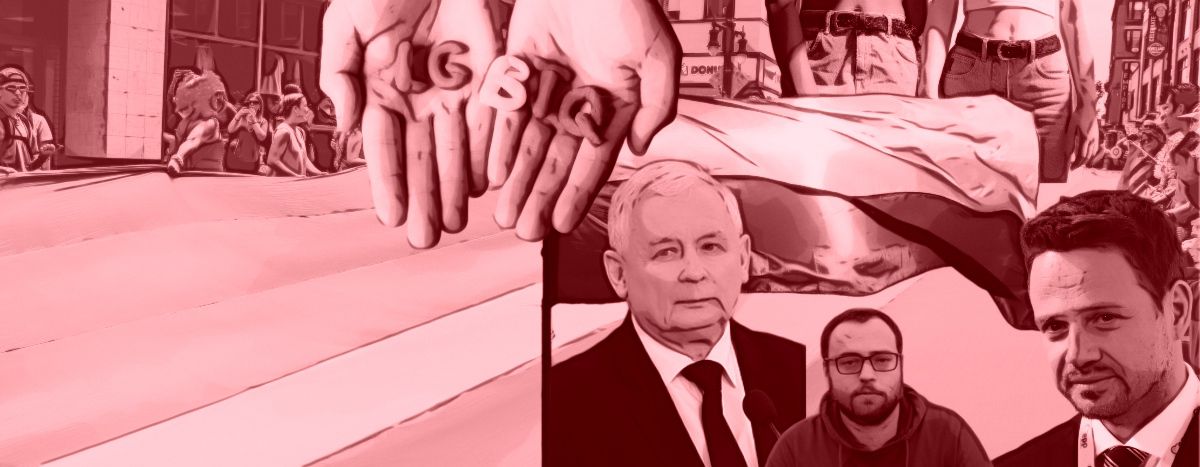
Europa Reloaded, Episode 8: The struggles of Poland's LGBTQI community
Published on
Translation by:
 Martina A.
Martina A.
Over the past few years Europe has made progress towards establishing equal rights between LGBTQI and heterosexual individuals. Yet there's still a long way to go. In this Italian language podcast we spoke to Kamil Maczuga, an activist, and Belinda Dear, advocacy officer at ILGA Europe, about the movements that are attempting to improve the situation today. An English language summary follows the audio.
On 12 November 2020, Helena Dalli, the European Commissioner for Equality, introduced the first European strategy to strengthen the rights of Lesbian, Gay, Transgender, Queer and Intersex people (LGBTQI) in the EU.
The strategy has the following goals: to include hate speech and violence against LGBTQI people in the official list of acknowledged crimes of the European Union; to increase the paternity and maternity rights of LGBTQI people; to encourage the official identification of LGBTQI people's de facto relationship status across national borders.
Nevertheless, despite initiatives such as this, the fact remains that 43% of LGBTQI people still feel discriminated against. Poland is one of the most problematic countries as far as this issue is concerned.
The Polish case
In this episode of the Europa Reloaded podcast (produced by Bulle Media with the support of European Cultural Foundation) we spoke to Kamil Maczuga (LGBTQI activist and member of the left party, Razem) and Belinda Dear (advocacy officer at ILGA Europe) about the situation in the Eastern European nation.
The weakening of LGBTQI peoples' rights in Poland is closely linked to the rise of the Law and Justice party (PiS) who, since 2015, have been in charge of the country.
PiS is a conservative party which espouses traditional and Catholic values. As we discussed in episode 5 of this series, on women's rights to abortion, they are particularly concerned with 'protecting the nuclear family' from what they see as liberal threats against it. Over the past two years, in particular, they have exacerbated their campaigns against Poland's LGBTQI community.
"At the moment the situation is as follows: we have reached a point when an LGBTQI activist can be nominated [for a European award] and yet Polish leaders still affirm they are an enemy of the country. This is not something that you can see anywhere else," says Belinda Dear.
What is Europe doing?
The European strategy to define homophobia in legal terms, is just one of many measures the EU has taken to support activists fighting for the equality of LGBTQI individuals.
The Charter of Fundamental Rights, for example, introduces the principle of non-discrimination of sexual preference into European Union law. There is also a specific directive, the Racial and Employment Equality Directive, which prohibits discrimination in the workplace including on grounds of sexuality.
Finally there is the European Court, which in recent years has been appealing to case-law in order to guarantee better protections for the LGBTQI community.
How to support the LGBTQI battle in Poland
I-D magazine have set-up a useful resource, collecting links of organisations and websites which enable international observers to keep in touch with and donate to LGBTQI+ associations in Poland.
Meanwhile, at an administrative level, ILGA Europe is the European umbrella organisation of the ILGA, an international NGO comprised of 600 national institutions in 54 countries from Europe and central Asia. ILGA Europe organises support for activists, helping them develop skills and networks while also engaging in institutional lobbying towards the EU.
Europa Reloaded is supported by a grant from the European Cultural Foundation (ECF). Media partners include Cafébabel and fanpage.it
Translated from Europa Reloaded (Ep8): La lotta della comunità LGBTQI+ in Polonia


